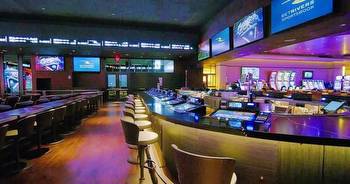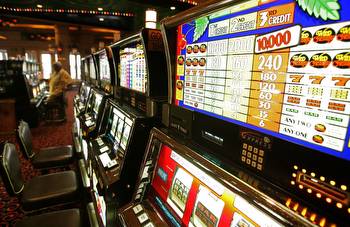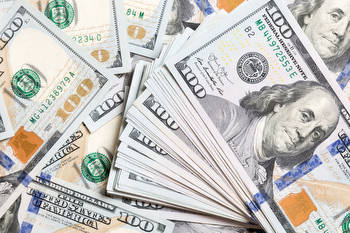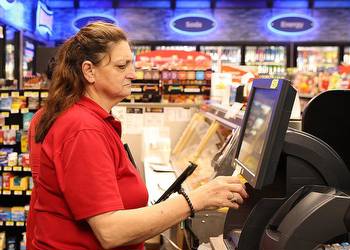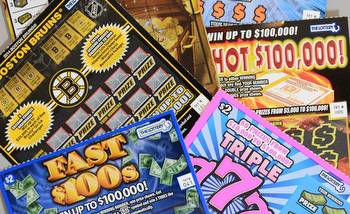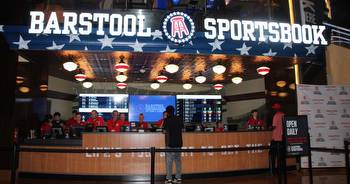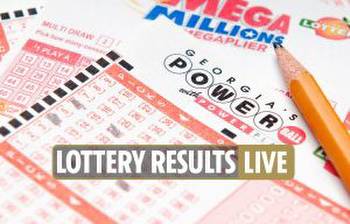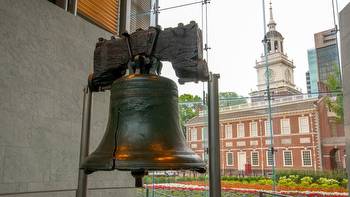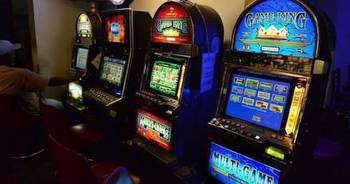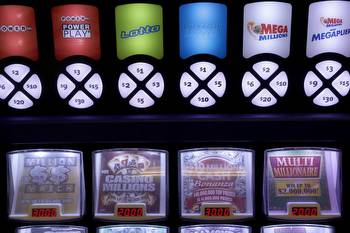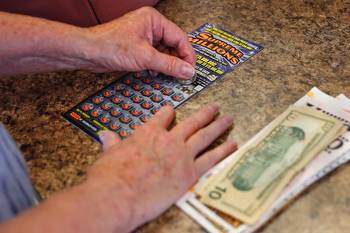Lottery Ticket Sales Rise, Casino Revenue Slips
A lucky northeast Kansas lottery player nailed the Powerball jackpot on Nov. 19 to claim $92.9 million.
“The Kansas Lottery had the pleasure of making someone out there a little more thankful,” said Stephen Durrell, executive director of the Kansas Lottery. “Nothing makes us happier than giving away a big jackpot to our players.”
That followed by less than two weeks the giddy Powerball action leading to folks in California pocketing a $2.04 billion jackpot. Interest in Powerball, and the Mega Millions game, pushed Kansas lottery revenue to $35.5 million in November. That represented a 46% rise from $24.2 million in November 2021.
This transpired while Kansas sought to find its footing in the sports wagering world. Introduction of legal sports betting in Kansas resulted in monthly wagering on athletic events of $160.5 million in September, $189.9 million in October and $186.3 million in November. The three-month total: $536.7 million.
Those hefty numbers, fueled by promotional incentives lavished on sports bettors, were robust enough to raise questions about whether the advent of sports betting in Kansas would slice into consumer enthusiasm for the state’s routine casino gambling or lottery ticket sales.
Durrell said there would be a sorting out period in Kansas’ gambling and lottery sectors, but there was no evidence the traditional lottery or casino operations would collapse under the weight of sports books.
“They like to stay in their individual silos. They don’t typically cannibalize each other,” Durrell said.
The most recent statistics on legal sports gambling managed through the state’s four casinos in Dodge City, Pittsburg, Mulvane and Kansas City, Kansas, showed a leveling of sports wagering and an increase in net revenue and state tax collections from betting on athletics.
Net revenue from sports betting in Kansas climbed from $1.29 million in September to $1.43 million in October and to $8 million in November. In the initial three months of mobile, online and retail sports wagering in Kansas, the state’s piece of the action was $1 million. Eighty percent of that revenue must be deposited in a fund dedicated to helping attract another professional sports franchise to Kansas.
The state’s share of sports gambling revenue was set at 10% in the bill approved by the 2023 Legislature and signed in May by Gov. Laura Kelly. There appears to be little interest in the Legislature for amending the law to increase the state’s tax on sports wagering revenue.
“No interest whatsoever,” said Kansas House Speaker-elect Dan Hawkins, a Republican from Wichita.
The Kansas law enabled sports betting companies tethered to the four casinos to deduct from taxable revenue the value of promotional subsidies used to build loyalty among sports gamblers. For example, promotional activities related to “free bets” at BetMGM in Kansas left it without net positive revenue for September, October and November. DraftKings and FanDuel reported net positive revenue in Kansas for the first time in November.
Standard gambling revenue from the four casinos was reported to be $33.7 million in September. However, October casino revenue dropped to $32.9 million. The revenue report for November showed a decline to $31.6 million.
In September, the Kansas Lottery documented ticket sales of $24.6 million. Ticket sales surged to $30.2 million in October. In November, interest in Powerball and Mega Millions pushed sales to $35.5 million in Kansas.
“Like any business, it’s going to have its ebbs and flows,” Durrell said. “We’re all curious to see what happens.”
_ _ _
Story by Tim Carpenter via Kansas Reflector
Photo via Kansas Reflector: Gov. Laura Kelly, who signed a bill in May legalizing sports betting in Kansas, placed the state’s first bet in September on the Kansas City Chiefs. In three months, $536 million has been wagered in Kansas on sporting events. Kansas Lottery ticket sales surged in the period while revenue at the state’s four casinos declined.








